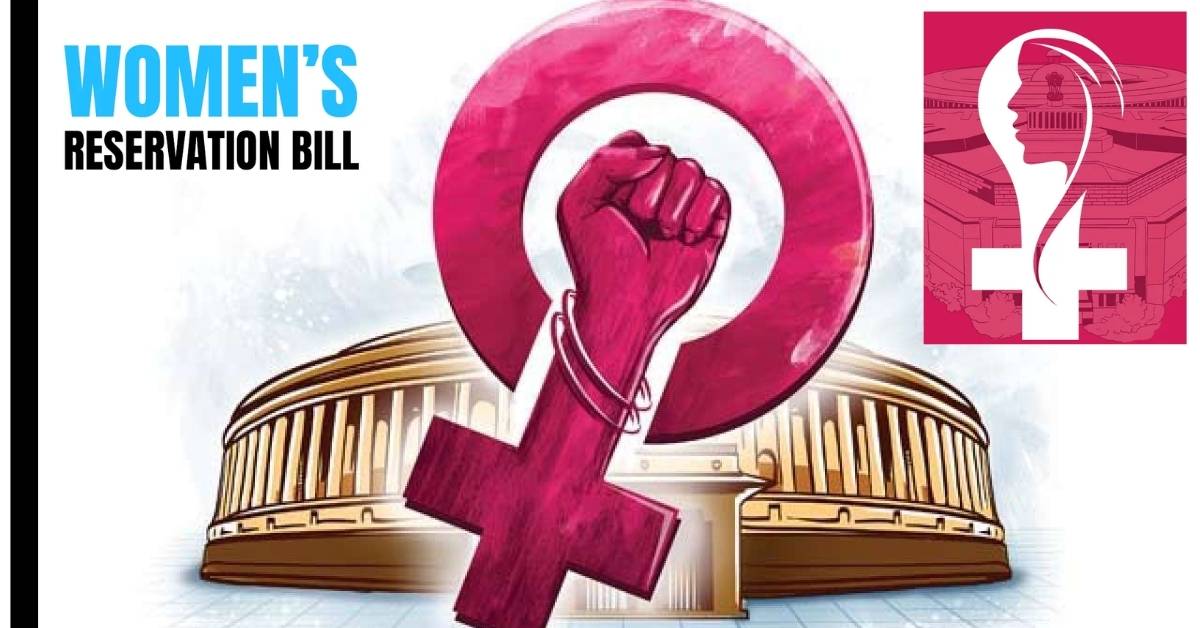In a significant move towards achieving gender equality in Indian politics, the Women’s Reservation Bill, officially known as the “Nari Shakti Vandan Adhiniyam,” was successfully passed in the Lok Sabha with strong support. This landmark decision is a crucial step in empowering women in the political sphere.
Why Is Women’s Reservation Bill Important?
This development is noteworthy because it represents a rare instance of bipartisan cooperation in the Indian Parliament. The bill aims to reserve 33% of seats in the Lok Sabha (the lower house of Parliament), state legislatures, and the Delhi legislative assembly for women.
Such a move is expected to increase the representation of women in these governing bodies significantly:
Lok Sabha passes Women’s Reservation Bill granting 33% seats to women in Lok Sabha and state legislative assemblies
454 MPs vote in favour of the bill, 2 MPs vote against it pic.twitter.com/NTJz449MRX
— ANI (@ANI) September 20, 2023
Engage your curiosity with:
- In Udaipur, Two Cars Fell Into a Collapsed Old Drain!!
- We Have Found an Illicit Weapons Factory in Kashipur, West Bengal!!
A Long Journey is The History of the Bill
The Women’s Reservation Bill had previously been passed in the Rajya Sabha (the upper house of Parliament) in 2010 during the Manmohan Singh government. However, it was not enacted due to the dissolution of the 11th Lok Sabha. This delay underscores the long road the bill has travelled before reaching this point.
The bill, officially titled the “Nari Shakti Vandan Adhiniyam,” represents a bold endeavour to elevate women’s participation in India’s political arena by reserving 33% of seats in the Lok Sabha, state legislatures, and the Delhi legislative assembly for women.
This profound commitment to gender equality has been a goal pursued by successive governments. One pivotal moment in the bill’s history occurred in 2010 when it secured approval in the Rajya Sabha, India’s upper house of Parliament. At that time, the nation was under the governance of Prime Minister Manmohan Singh.
The passage of the bill in the Rajya Sabha was a momentous achievement, signifying broad political consensus on the need to enhance women’s representation in legislative bodies. However, the journey of the Women’s Reservation Bill took an unexpected turn when it encountered an obstacle that prevented its immediate implementation.
The dissolution of the 11th Lok Sabha, the lower house of Parliament, posed a formidable challenge. With the dissolution of the Lok Sabha, the bill, despite its approval in the Rajya Sabha, could not progress further.
The Women’s Reservation Bill has embarked on a remarkable and often challenging journey through India’s parliamentary landscape. Its historical trajectory is marked by several notable milestones and significant hurdles, illuminating the complexities of enacting transformative legislation.
This delay underscores the intricate nature of India’s parliamentary system, where continuity in the legislative process is often disrupted by-elections and political transitions. The bill’s momentum was temporarily halted by the inevitable shifts in government and parliamentary sessions.
Yet, the Women’s Reservation Bill persisted as an emblem of India’s commitment to fostering gender equality in politics. It serves as a testament to the enduring determination of lawmakers and advocates who have strived to ensure that women have a more substantial voice in shaping the nation’s future.
As the bill now resurfaces in the Lok Sabha and takes steps towards potential enactment, its long history serves as a poignant reminder of the challenges and triumphs in the pursuit of gender parity in India’s political landscape. Watch the Prime Minister himself explaining the matter, he says:
“This bill will lead to a new confidence in the people of the country. All members and political parties have played a significant role in empowering women and enhancing ‘Nari Shakti’. Let us give the country a strong message.”
#WATCH | Women’s Reservation Bill | Prime Minister Narendra Modi says, “This bill will lead to a new confidence in the people of the country. All members and political parties have played a significant role in empowering women and enhancing ‘Nari Shakti’. Let us give the country… pic.twitter.com/PtvHsOCRPk
— ANI (@ANI) September 21, 2023
Join the conversation with:
How Reservation for Women Works?
It’s important to note that this reservation does not extend to the Rajya Sabha or state legislative councils. Additionally, it excludes reservations for women belonging to the Other Backward Class (OBC) category.
One-third of the reserved seats will be allocated to women from the Scheduled Castes and Scheduled Tribes:
#WATCH | Delhi: On the Women’s Reservation Bill, BJP MP, SS Ahluwalia says, “This problem of women reservation has been going on for a long time…The seats have been divided between the ST, SC and the General. Those who win from the general category also include OBC…” pic.twitter.com/y5xs63E0ar
— ANI (@ANI) September 21, 2023
What Happens Next?
Before becoming law, the Women’s Reservation Bill must pass the Upper House of Parliament and gain approval from at least half of India’s state legislatures. Notably, there have been six previous unsuccessful attempts to pass the bill since its introduction in 1996. This bill required a two-thirds majority to pass.
The government introduced this bill, formally titled the Women’s Reservation Bill 2023 {The Constitution (One Hundred Twenty-Eighth Amendment) Bill, 2023}. Home Minister and Bharatiya Janata Party (BJP) leader Amit Shah emphasized that the bill will provide reservations for women across the existing three categories: general, Scheduled Castes, and Scheduled Tribes.
Be the ones who know:
- Ayushmann Khurrana Receives Inspiring TIME 100 Impact Award!!
- Why Shekhar Kapur Turned Down ₹300 Crore Offer for Mr. India 2??
Debate and Concerns
The debate over the Women’s Reservation Bill stirred lively discussions in the Lok Sabha. Sonia Gandhi, the Congress Parliamentary Party Chairperson, called for reservations for Other Backward Classes (OBCs) and the immediate implementation of the bill. In response, BJP MP Nishikant Dubey claimed that the Congress had not previously addressed this issue.
Rahul Gandhi, another prominent Congress leader, echoed concerns about the lack of OBC reservations in the bill. He expressed his desire to see the OBC reservation included, emphasizing its importance.
In contrast, Home Minister Amit Shah asserted that reservation is not a political issue for the BJP and Prime Minister Narendra Modi. The bill now stands at a crucial juncture, awaiting further deliberation and action in the legislative process. Stay with Digi Hind News for more latest gossip bites and news related to politics, celebrities and more.



https://t.me/site_official_1win/394
https://t.me/s/bEeFcaSiNO_oFfiCiALS